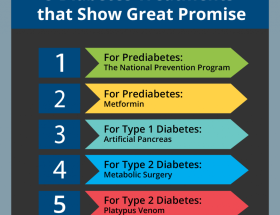Athletes dedicate countless hours to perfect their skills and achieve peak performance. Alongside training, one crucial factor that significantly impacts their success is nutrition. Proper nutrition not only fuels their performance but also aids in recovery, allowing athletes to push their limits and reach new heights.
Nutrient Timing: The Key to Optimal Performance
Athletes need to understand the importance of nutrient timing. Consuming the right nutrients at the right time can deliver immense benefits to their performance. Before exercising, a balanced meal that includes carbohydrates for energy, protein for muscle repair, and healthy fats for sustained energy is ideal. Post-workout nutrition, within the first 30 minutes, should focus on replenishing glycogen stores and providing protein for muscle recovery.
Carbohydrates: The Energy Source
Carbohydrates are the primary fuel source for athletes. They provide the energy needed for workouts, endurance, and performance. Including complex carbohydrates like whole grains, fruits, and vegetables in their diet ensures a steady release of glucose, preventing sudden energy crashes. Simple sugars, such as those found in sports drinks or energy gels, can be consumed during intense exercise to provide a quick energy boost.
Optimizing Protein Intake for Recovery
Protein plays a crucial role in muscle repair and recovery. Athletes should aim to consume an adequate amount of protein, spread out throughout the day, to support muscle growth and prevent muscle breakdown. Lean meats, fish, poultry, dairy products, legumes, and plant-based protein sources like tofu or tempeh are excellent choices to incorporate into their diet.
The Power of Healthy Fats
While fats have been given a bad reputation in the past, healthy fats are essential for athletes. Omega-3 fatty acids, found in fatty fish like salmon, walnuts, and chia seeds, have anti-inflammatory properties and aid in joint health. Monounsaturated fats, found in avocados, olive oil, and nuts, provide long-lasting energy and support hormone production. Incorporating these healthy fats into their diet can improve overall performance and enhance recovery.
Hydration: The Secret Weapon
Proper hydration is often overlooked but immensely crucial for athletes. Dehydration can lead to decreased performance, fatigue, and even injuries. Athletes should aim to drink enough water throughout the day, both during workouts and rest periods, to maintain optimal hydration levels. Electrolyte-rich sports drinks can also be consumed during intense physical activity to replenish essential minerals lost through sweat.
Supplements: Enhancing Performance Safely
While a well-balanced diet should provide most of the necessary nutrients, certain supplements can support an athlete’s nutrition regimen. They should consult with a sports nutritionist or healthcare professional who can guide them on appropriate supplementation. Common supplements include protein powders, branched-chain amino acids (BCAAs), creatine, and vitamins/minerals tailored to specific needs.
Conclusion
Athlete’s nutrition plays a vital role in maximizing performance and aiding in recovery. A consistent focus on nutrient timing, consuming the right balance of carbohydrates, proteins, and healthy fats, staying hydrated, and incorporating appropriate supplements if necessary can set athletes up for success. Remember, everyone’s nutritional needs may vary, so seeking professional guidance is key. By combining proper nutrition with targeted training, athletes can unlock their full potential and achieve their goals.






